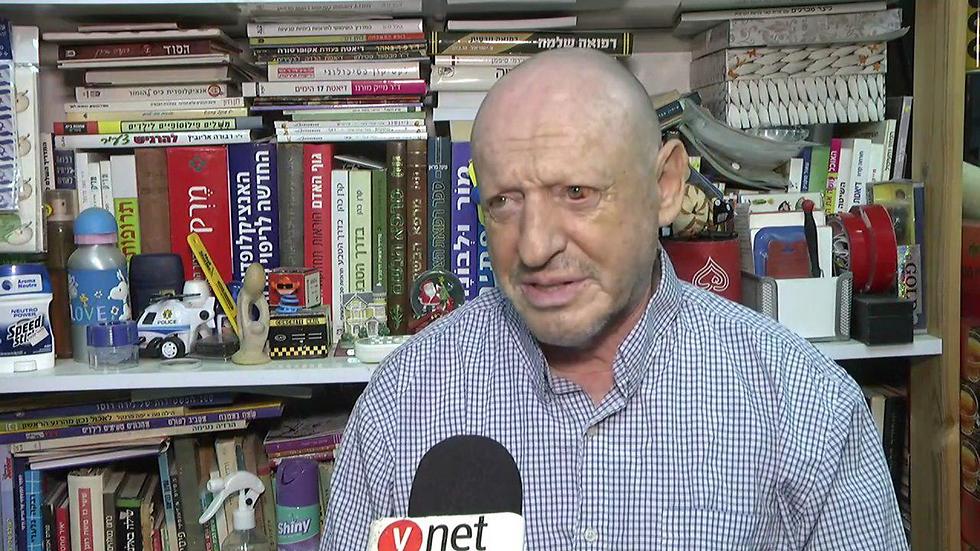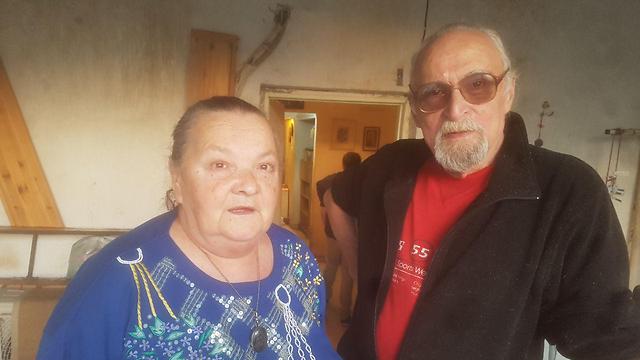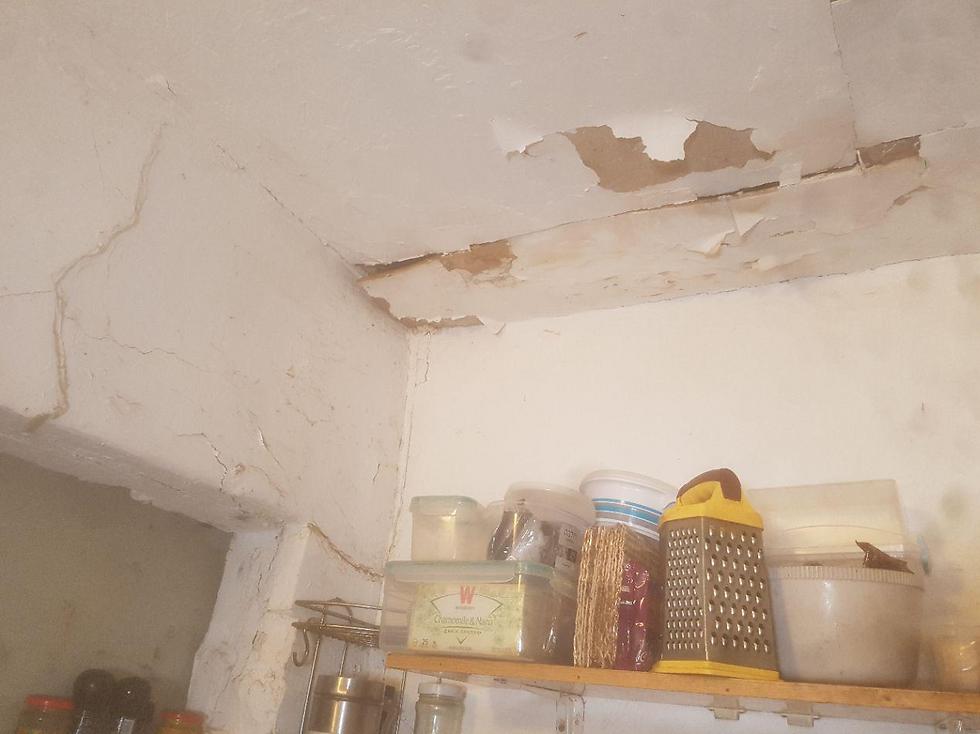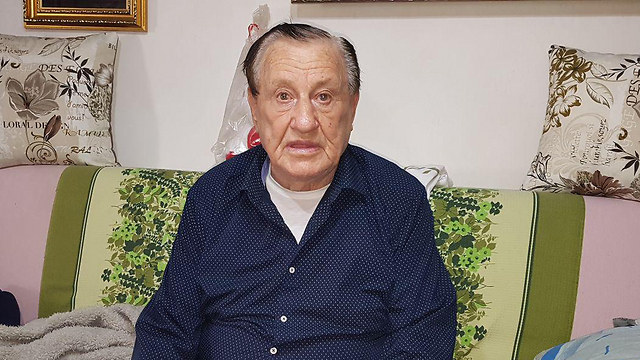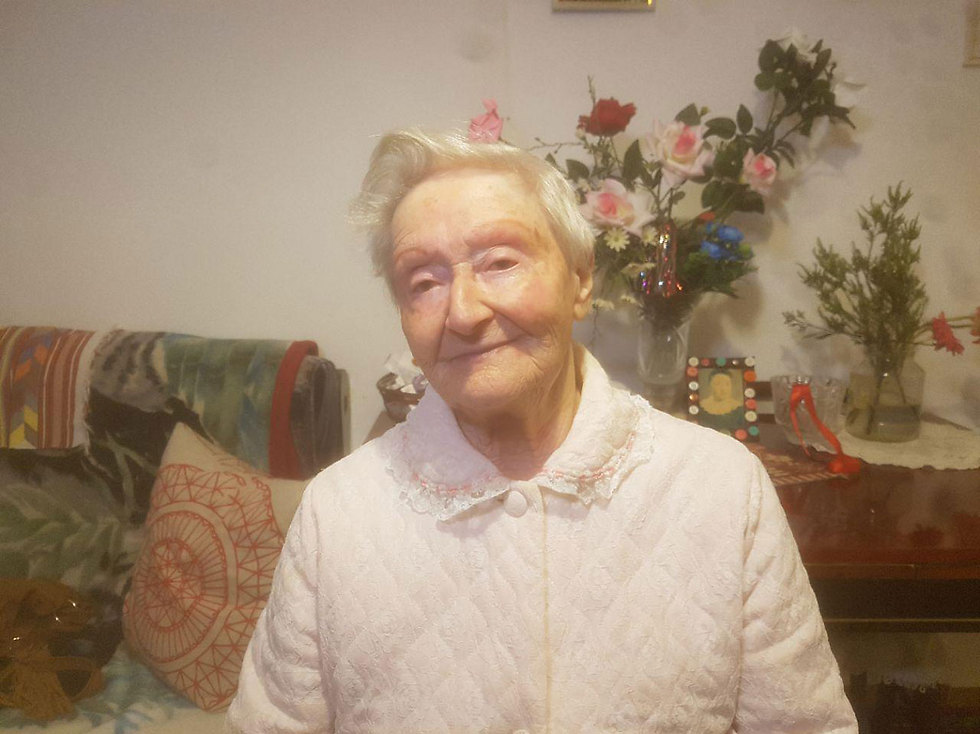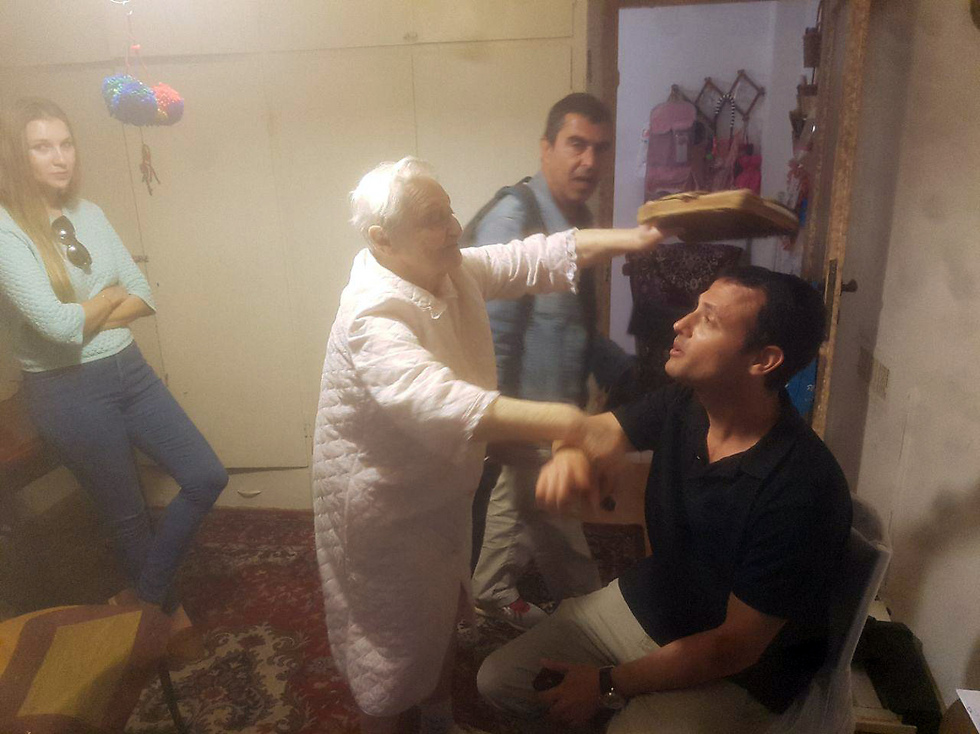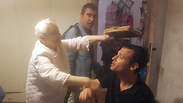
Loneliness of Holocaust survivors: 'Most of the time I am alone at home, with four walls'
Their families were murdered in the Holocaust, they survived without food or water, and these days, many of them have to decide whether to buy medicine or pay their electricity bill, but what is bothering many survivors now is how lonely they are.
More than the sense of scarcity and uncertainty about whether to pay the electricity bill or buy medicine, the terrible loneliness is the most difficult for elderly Holocaust survivors. Three such survivors—Julius, Ernest, Zvi and Svetlana—pull back the curtain and show a glimpse into the at times sad reality that they face.
On Thursday, the State Comptroller published a report that stressed the dire financial and physical reality for many Holocaust survivors, underscoring some serious oversight by the government to help them toward the end of their life. However, when asked about their day-to-day hardships, loneliness appears to be no less difficult.
'I'm nothing but a number'
Julius Brown, 80, lives alone in the Jerusalem neighborhood of Gilo. "I rarely leave the house. What do I have to do outside? What do I have to live for?"
Regarding the Welfare Office, Brown states, "I'm nothing but a number to them. They don't come here. They claim they have so many cases to take care of. This country was established because of the reparations it received from Germany. They could have said, 'Guys, thank you very much, now it is our turn to help you.'"
Brown says he often thinks about suicide. "You remember the past. It comes back to you every time, and you tell yourself, 'What do I have to live for, let's end it and commit suicide, and then I think who will help others if I go because I'm actually trying to help others. When I'm alone I cry a bit and get into a little depression. Music is the only thing that can calm me down."
A broken kitchen with almost no food
Ernest Ravitzkin, also 80, lives in Netanya with his wife Irena in a foul-smelling, windowless room. Ravitzkin was four when World War II reached Ukraine. Together with his mother, they fled from the Nazis on a long and dangerous journey through the Soviet Union to seek refuge. Ernest and his mother survived the Holocaust, but the rest of his family did not.
After the war he immigrated with his wife to Israel, and today they live in one of the neighborhoods in northern Netanya in a neglected and disintegrating apartment with dozens of cats and an old dog. The dampness penetrates the holes in the walls and ceiling, and when it rains, the poor drainage in the yard channels the water straight into their house.
Since the apartment has no windows, the front door must be left open for any air to come in. The marble in the couple's small, dimly lit kitchen is broken, the old sink rests on a wooden kitchen chair and the plumbing leaks. The refrigerator does not work, and there is hardly any food. The stale air in the apartment stinks of heavy mold and the strong smell of urine of dozens of cats living with them.
"The first time I came here I was in shock," says Eran Nir, entrepreneur and leader of the independent volunteer project "Lema'anam" ("For Them"), which provides food and support to Holocaust survivors through donations and volunteers. "It's very difficult to see these terrible living conditions, and as part of the project that I initiated, every three weeks we bring them food, but the refrigerator does not work and the kitchen is broken.
The Lema'anam project distributes basic food packages to 25 Holocaust survivors, and during Passover the volunteers distributed 70 additional packages. "A few years ago I started the project on my own. I asked the Netanya Municipality Welfare Department for the addresses of two Holocaust survivors in distress, and today we are dealing with dozens of others," says Nir. "Every year, some of the Holocaust survivors we help die, and there are always other people who need help, and our goal now is to bring a proper refrigerator to Ernest and his wife and fix the marble and sink in the kitchen."
'What do I have to live for?'
Zvi Weinberg, 84, is a Holocaust survivor from Romania who lives alone in Ashdod. 20 years ago, he lost his wife, Mardina. These days, a young student occasionally accompanies him outside the house. On Pesach, he stayed with the student's parents. Another volunteer visits Zvi every week, but sometimes the loneliness still wins out. "There are people who visit me now, but it was not always like that," says Zvi.
In the past year, Zvi has had a weekly meeting with a psychologist. A quick calculation shows that he sees people four out of 168 hours a week, not including his caretaker. "We don't see each other every week," he explains. "But I thank God for whoever comes by."
Weinberg is provided with an old-age pension from the National Insurance Institute of about NIS 1,800 and a stipend from the Treasury of NIS 2,200. In addition, he also receives a pension of NIS 3,000 from the Israel Railways. He does not, however, receive reparations from Germany. He lives in public housing and pays NIS 900 rent. "At my age, I need a lot of heating in the winter, and in the summer I need a lot of cooling; the electricity is my largest expenditure. You have to give up a lot of things to make it warm in winter and cold in the summer. Usually, you give up food, because you can't give up medication."
About a year ago, Weinberg went blind. "Is there anything worse? I can't even reach for a glass." He is entitled to a caregiver for two hours a day. "But what can you really do with two hours a day? There are days and weeks when I do not leave the house because there is no one to help me. The young student who assists me does not always come. Unfortunately, I find myself trapped inside the house."
In 1947, Weinberg immigrated to Israel as a child. "I served in four wars and served in combat engineering, and what do I get?" He says. "I do not have anyone, most of the time I'm alone at home, with four walls, and from the volunteers who come once a week you can't really ask for help. They come and talk to you and that's good, but that's not enough. There isn't anyone who truly represents Holocaust survivors; how can this be?"
A need for human contact
The survivors' harsh living conditions are also evident during a visit to the energetic and smiling Holocaust survivor Svetlana Zunis, 82, from Ukraine who immigrated to Israel in the 1990s. She lives in a tiny apartment in Netanya. "I remember terrible hunger in the eyes of a child. We ate bark and grass; there was nothing to eat," she says of the Holocaust. "Even in Israel, I settle for little, I am used to it from the war."
Although Zunis worked as a Russian teacher in the former Soviet Union, like many immigrants from Ukraine, she does not receive a pension and is forced to survive only from the National Insurance Institute. "In Ukraine there is chaos and war, they are miserable, and here I receive NIS 2,900 from the National Insurance Institute and pay NIS 2,060 for the apartment."
The occasional volunteer visit slightly alleviates Svetlana's loneliness. She sings Nir's praises, smothering him with caresses and kisses, and it is clear that she needs not only food and money for her medication, but also human contact.
President of the International Fellowship of Christians and Jews, Rabbi Yechiel Eckstein, says that it is sad to see how thousands of elderly people and survivors continue to live alone and in need.
He goes on to say that while it is a failure and a moral stain on all of Israeli society, but apart from the state, it is the responsibility of every citizen in Israel to care for the quality of life of the survivors and all the elderly here, and not to neglect them. He adds that it is not enough to remember those who perished, but also imperative to act today for those who survived and are still living among us.
Mirit Harari, Chairman of the Board of Directors of volunteer organization Sahi, said that "This generation of founders and veterans who came from the Diaspora to Israel and built it through all the hardship—we must not forget them for a moment."
Speaking about Sahi's volunteer work, Harari added that "Our young people renovate their homes, take care of their groceries, distribute flowers to them, and especially thank them. Thank you for building a state for us. Those who do not appreciate and cherish the heroes of the past who established the state cannot build a meaningful future."
Ilana Curiel, Liran Levi and Assaf Kamer contributed to this report.










